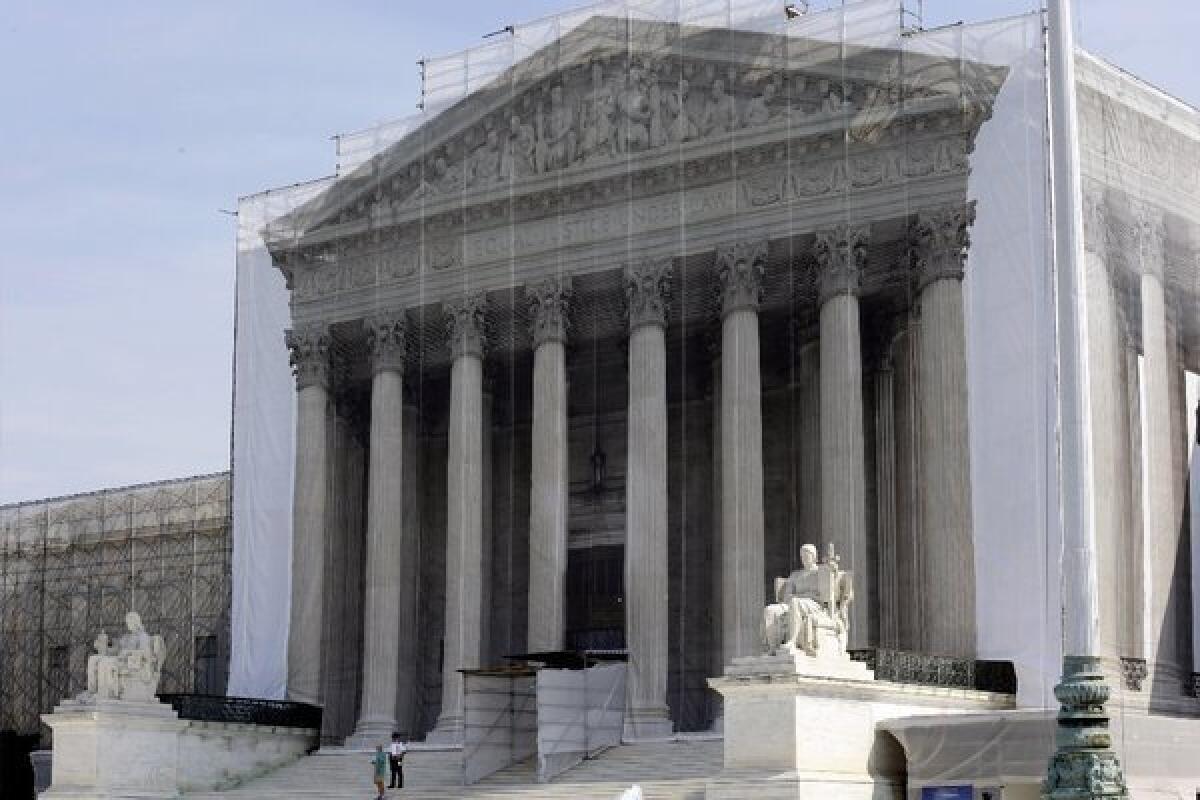Will âstate secretsâ stymie a wiretapping lawsuit?

Civil libertarians are upbeat after an argument in the Supreme Court this week over whether lawyers, activists and academics can challenge the constitutionality of a law authorizing the wiretapping of potential terrorists abroad -- who may be conversing or swapping emails with Americans. The plaintiffs, who carry on confidential conversations with foreign clients and sources, say the law chills them in the exercise of their rights.
As is often the case, the civil liberties groups are pinning their hopes on Justice Anthony M. Kennedy, who has voted with liberals on the court in previous cases arising from the war on terrorism. Kennedy seemed receptive to the plaintiffsâ argument that they have standing to sue because they fear that their confidential conversations with sources and clients are being monitored.
âI think the lawyer would engage in malpractice if he talked on the telephone with some of these clients, given this statute,â Kennedy told Solicitor General Donald Verrilli. (The statute in question is the Foreign Intelligence Surveillance Act as amended in 2008.)
But suppose the court did conclude that the plaintiffs had standing to sue? Would the government then have to explain in open court how extensively it is monitoring the international conversations of Americans? Not necessarily. Consider this exchange between Verrilli and Justice Ruth Bader Ginsburg:
Ginsburg: â . . . just letâs suppose that the court should hold there is standing. Wouldnât the government then say as far as the merits of the complaint, this information is classified, is a state secret, we canât -- we canât go forward with the litigation?â
Verrilli: âThat is a possibility.â
A good possibility, in light of the administrationâs willingness to invoke the âstate secrets privilegeâ in other settings.
ALSO:
Stephen King gets kicked out of high school
Goldberg: Benghazi -- no mere âOctober surpriseâ
Endorsements: The Timesâ recommendations for Nov. 6
More to Read
A cure for the common opinion
Get thought-provoking perspectives with our weekly newsletter.
You may occasionally receive promotional content from the Los Angeles Times.











